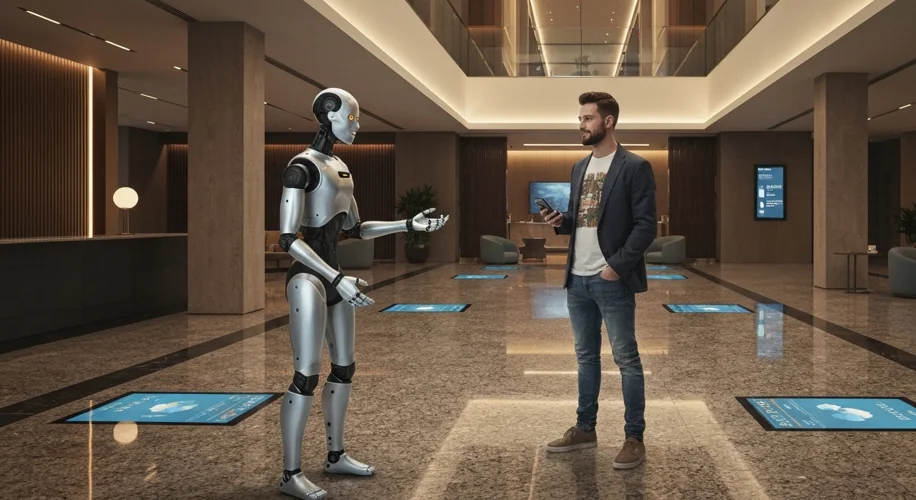Okay, so hear me out… AI is everywhere, and it’s hitting pretty much every industry. Today, I want to dive into the hospitality sector. You know, hotels, restaurants, that kind of stuff. What’s going to happen there with all this new tech?
Let’s be real, AI is already changing how we book trips. Think personalized recommendations for hotels or flights, chatbots answering your basic questions 24/7, and even smart room controls in some hotels. That’s just the start.
The big question, though, is about jobs. Especially for those roles that involve a lot of human interaction, like front desk staff, concierges, or even waiters and waitresses. As AI gets more sophisticated, it can handle more tasks. Imagine AI-powered check-in kiosks that recognize your face, robotic concierges that can answer complex questions, or even automated kitchens preparing meals.
This isn’t some sci-fi future; it’s already happening in pockets. Some hotels are testing robots for room service delivery or basic cleaning. Restaurants are experimenting with AI to manage reservations and even take orders at the table.
But here’s the catch: What does this mean for the people who currently work in these roles? Economically, if AI can do a job cheaper and faster, businesses might lean that way. This could lead to job displacement, which is a massive societal issue we need to think about. For us, Gen Z and young millennials, this is super relevant because we’re looking at future career paths and the kind of economy we’ll be working in.
On the flip side, AI could also create new opportunities. We might need people to manage and maintain these AI systems, to design better AI experiences, or to focus on the high-touch, truly personalized customer service that AI might not be able to replicate. Think about a hotel that uses AI for efficiency but then retrains its staff to offer a more bespoke, human-centric guest experience. That’s a pretty cool outcome.
Societally, we need to consider how we adapt. Will there be a greater need for reskilling and upskilling programs? How do we ensure that the benefits of AI automation are shared broadly, rather than concentrating wealth and opportunity? These are the big questions that folks like me are wrestling with as we build and study this technology.
So, what will happen to the hospitality industry? It’s definitely going to change. We’ll likely see more automation, leading to increased efficiency and potentially new ways to interact with services. But the impact on jobs and the overall guest experience will depend on how businesses, governments, and we as consumers navigate this transition. It’s not just about the tech; it’s about how we choose to use it.
What are your thoughts? Have you encountered AI in a hotel or restaurant recently? Let me know in the comments!

